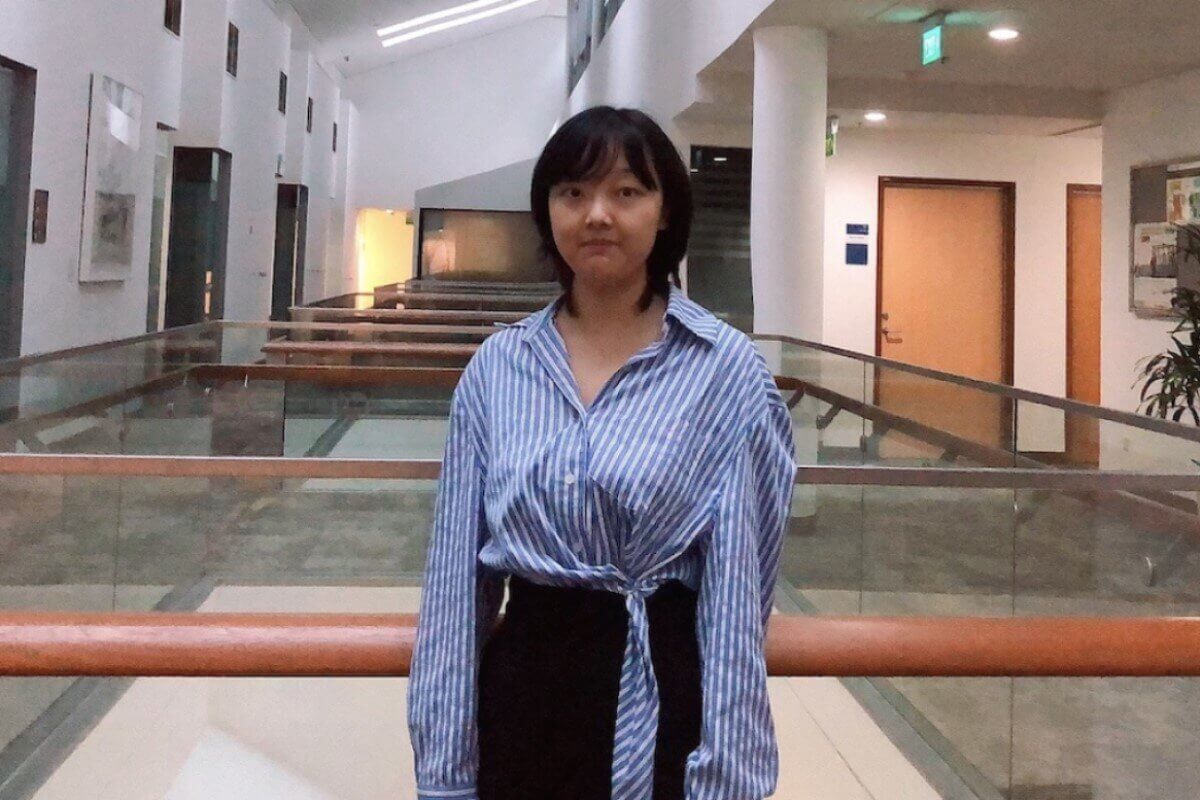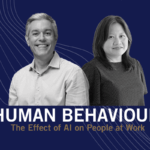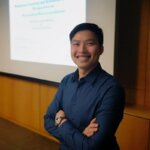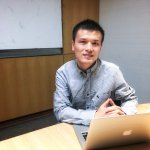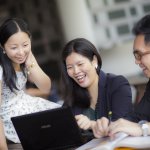By the SMU Postgraduate Research Programmes Team
The Covid-19 pandemic has impacted almost all segments of the industry, including the work of PhD candidates, whose ability to collect data or share expertise with fellow colleagues was disrupted by social distancing measures and the inability to travel. However, for SMU PhD in Business (Finance) student Jin Zuben, the global crisis has provided a silver lining because the pandemic has, as she notes, “made my research life simpler and easier.”
Zuben explained, “For example, all conferences have been held online since the pandemic broke out and I was able to attend most of them. This was not possible when such events were held face-to-face because I am unable to fly to the different locations worldwide, given limited time and financial resources.”
Passion for quantitative analysis and big data
The 27-year-old was awarded the 2020 Crowell Second Prize by PanAgora Asset Management for her paper, “Geographic Links and Predictable Returns”, co-authored with her advisor Professor Li Weikai. The annual Crowell Prize provides a forum for new and cutting-edge research that connects theory and practice.
Tapping on her background in quantitative analysis and big data, Zuben had completed her Master’s degree in Statistics at the London School of Economics (LSE). The paper used a large dataset to find the geography correlation among firms in the United States (US). The research had real-life implications in building trading strategies for maximising profits.

Zuben (far right) celebrating her birthday with friends while studying in London
After all, good research, like all other noble professional callings, has the ability to make a difference to one’s life, one’s work, and the world at large. Amid an abundance of information and resources, Zuben has focused her passions on topics that have the most relevance in the realm of finance: namely, climate change and financial implications, behavioural finance and artificial intelligence applications in finance.
“My job market paper, ‘Topic Similarity and Return Predictability’, is on applying modern natural language processing tools to finance documents and extract informative information,” shares the Chinese-born student, who moved to Singapore from London in 2017. “In an era of big data and automatic technology, I enjoy dealing with unstructured data by employing modern techniques from other areas to finance.”
An accidental discovery
Having completed her Master of Statistics (Financial Statistics)(Research) at LSE, Bachelor of Economics (Risk Management and Insurance) at the University of International Business and Economics in Beijing, and gained proficiency in statistical software systems like SAS and programming language Python, one would imagine that Zuben had always wanted to be a math whiz, computing guru or financial analyst. However, she admits to having dreamt of careers in design or even becoming a poet, as a child.
“When I was young, I was always dreaming of jobs that involved innovation,” recalls Zuben. “I only had my first brush with the field of quantitative analysis during my Bachelor studies, found it interesting, and discovered I was good at it.”
Upon delving into research papers during a course project, Zuben then found herself immersed in a trove of riveting studies that examined issues impacting financial markets.
“I find finance research an innovative area of work as it requires observation and thinking about real-life human behaviour and actions,” adds Zuben. “That’s when I knew this could be an area for me to employ my quantitative skills and ‘innovate’.”
A life-changing experience
She further honed this desire to disrupt and create change through her experiences in other major cities and universities around the world, including being a visiting student at Drake University in the US. Zuben then decided on SMU for her PhD studies due to its reputation as a comprehensive university and its research efficiency.
“Based on my experience as a Teaching Assistant, I find students in SMU dynamic and determined, and this has also influenced my own innovative thinking,” says Zuben. “The SMU faculty members are great in research and they are always willing to help students. In particular, Prof Li has given me a lot of support during my PhD journey. He is a great researcher and I am grateful for all his guidance.”

Zuben with her research supervisor, Prof Weikai Li
The doctoral studies journey is said to be a transformative experience for many and builds strengths in areas beyond academic excellence. For Zuben, who has already undergone the rigours of global undergraduate and graduate programmes, the pursuit of a PhD also helped to build character and essential life skills.
“During my PhD, I have learnt to engage in more independent and self-motivated thinking by extensively reading more papers and learning coding skills,” expresses Zuben. “One aspect that may have been unexpected was that oral presentations are also very important for a PhD candidate, and I found them challenging. I am more of a quiet person in my personal life and did not tend to express myself a lot. But I have since learned to defend my position and engage in discourse with others in the course of my PhD.”
While the pandemic has posed challenges for international students who were not able to return home for holidays, Zuben notes that Singapore is a familiar environment, with a culture similar to that of Chinese or other Asian cities. It is also a comfort that residents of our island state have been, as Zuben says, “kind and law-abiding”.
“The challenge of pursuing my PhD during a pandemic might be that I have to be apart from my family for a long time, which has been very difficult for me and to some extent, may have affected my work efficiency,” reveals Zuben. “But I am kind of getting used to this now, by focusing more on my work than anything else.”

